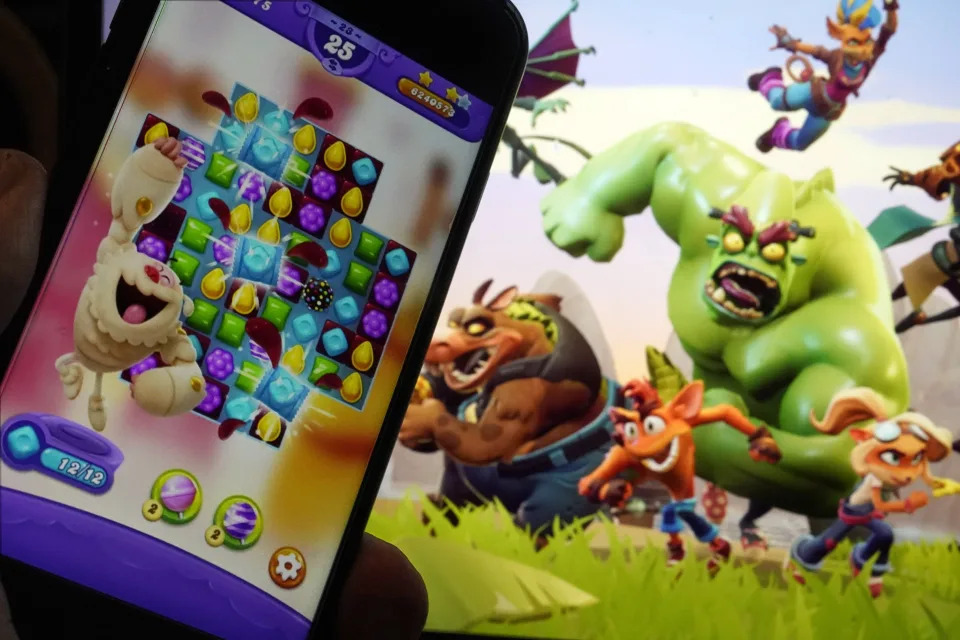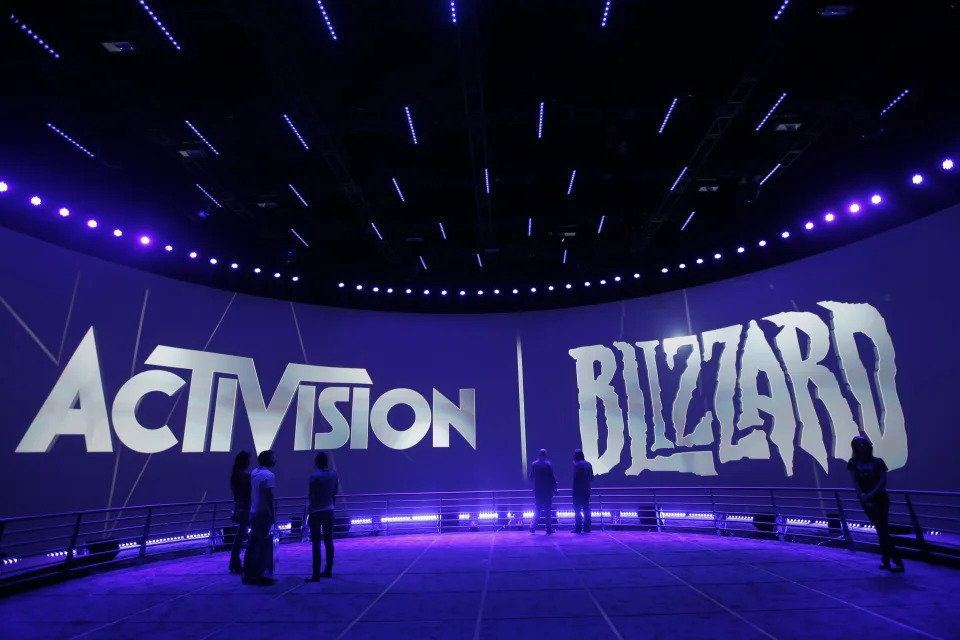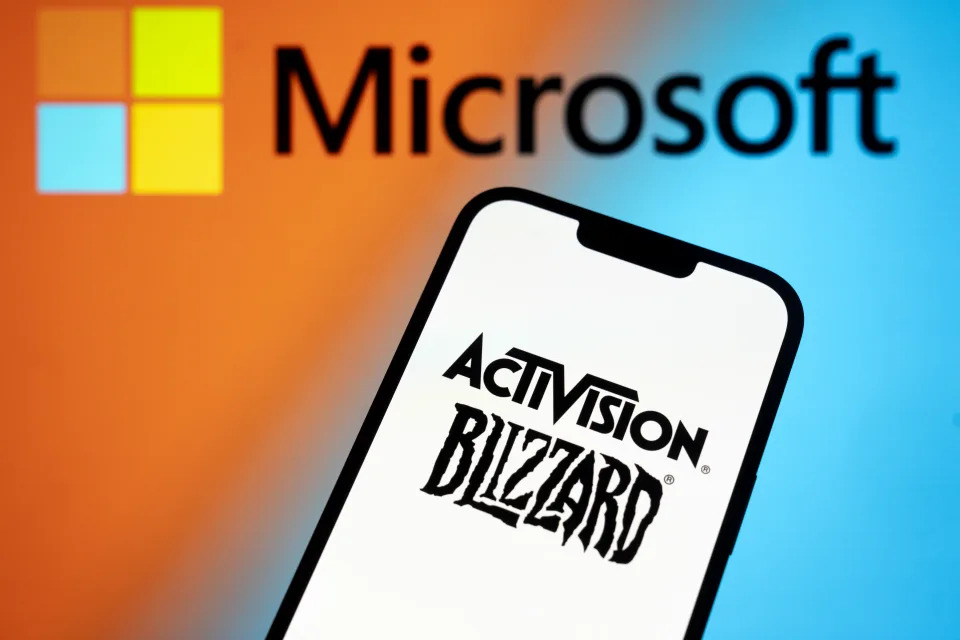The most significant acquisition in the history of the gaming industry and one of the largest in the tech sector has been successfully completed. Microsoft has acquired Activision Blizzard for a staggering $68.7 billion, marking it as the largest acquisition ever made by the company. Microsoft Gaming’s CEO, Phil Spencer, has extended an invitation to Activision’s CEO, Bobby Kotick, to remain with the company until the end of 2023, after which he will depart. The journey to this point has been marked by numerous unexpected developments.
Initially, the UK’s Competition and Markets Authority (CMA) opposed the acquisition in April. However, both the CMA and the companies involved agreed to suspend Microsoft’s appeal in an effort to address the regulator’s concerns regarding the merger’s potential impact on the cloud gaming sector. An appeal tribunal granted a request to postpone the proceedings.
In an effort to secure the approval of the UK regulator, Microsoft committed to transferring the cloud gaming rights for Activision Blizzard titles to Ubisoft. This means that not only will Activision Blizzard’s games be available on Xbox Game Pass, but they will also become accessible on Ubisoft+ and any other game streaming platform that Ubisoft chooses to collaborate with. The CMA’s initial reservations about competition in the cloud gaming market were the grounds for blocking Microsoft’s acquisition of Activision, but the regulator stated in September that the Ubisoft agreement “paves the way for approval of the deal.” A few weeks later, the CMA officially sanctioned the merger.
Microsoft has also inked 10-year agreements with Nintendo and various cloud gaming companies, enabling its titles to be accessible on their platforms. These strategic moves were pivotal in obtaining the European Union’s approval for the merger. According to reports, the competition officials within the bloc did not identify any elements in the amended merger agreement (which incorporated the Ubisoft plan) that warranted initiating a new antitrust investigation.
Despite the Federal Trade Commission’s efforts to impede the deal on grounds of competition concerns, they have not yielded successful results. The FTC initiated a lawsuit to block the merger in December, and an evidentiary hearing for that case was scheduled for August 2nd. The FTC sought a preliminary injunction to temporarily halt the merger before its administrative trial, but this request was denied by a judge.
The FTC still intends to challenge the merger. If their endeavor proves successful, Microsoft may be compelled to divest a portion or all of Activision Blizzard.
For the time being, the merger has been finalized. This development signifies that, among other outcomes, Activision Blizzard’s titles will become available on cloud gaming platforms for the first time since the publisher withdrew its titles from GeForce Now in early 2020. In the upcoming months, their games will undoubtedly be integrated into Game Pass, including Xbox Cloud Gaming, and they will be featured on Ubisoft+ and other platforms in collaboration with Ubisoft.
However, those eagerly anticipating the arrival of Activision Blizzard’s two major games for 2023 on Game Pass will need to exercise patience. The publisher has announced that Call of Duty: Modern Warfare III and Diablo IV will not be added to the service until the following year.
Furthermore, Blizzard games are already making their way to Steam, instead of being exclusively confined to the Battle.net launcher. It is likely that they will also be accessible through Xbox’s PC app. Worth noting, in legal filings, Microsoft characterized Activision’s strategy of exclusively releasing PC versions of Call of Duty titles on Battle.net in an attempt to boost the platform as a “resounding failure.”

One of the primary motivations cited by Microsoft for pursuing this merger was to expedite its entry into the mobile gaming market as a significant player. Activision Blizzard’s mobile revenue, totaling $1.9 billion in the first half of 2023 alone, will allow Microsoft to achieve this objective virtually overnight.
King, the driving force behind the highly successful Candy Crush franchise, outperformed Activision, generating revenue of $1.49 billion in the first half of the current year. Blizzard, primarily due to the tremendous success of Diablo IV, contributed the most revenue of the three units during this period, surpassing $1.5 billion. Notably, King boasted 238 million monthly active users as of June 30th, more than twice the combined total of Activision and Blizzard. Recent reports have revealed that Candy Crush Saga has amassed over $20 billion in lifetime revenue.
Blizzard has also ventured into mobile gaming with titles like Diablo Immortal, while Activision has Call of Duty Mobile in its portfolio, with Call of Duty: Warzone Mobile in development. According to the company’s most recent earnings report, Call of Duty boasts approximately 90 million monthly players, with “over half of all engagement on the mobile platform.”
Regarding the exclusivity of future projects, Microsoft Gaming CEO Phil Spencer has vowed to “do whatever it takes” to continue offering Call of Duty games on PlayStation. After several months of resistance, Sony eventually entered a 10-year agreement just before the initial merger deadline of July 18th, ensuring the continuation of that particular franchise on PlayStation and conceding defeat in its efforts to thwart the acquisition. Nevertheless, Microsoft is likely to opt for keeping other Activision Blizzard games off of PlayStation platforms, as it has done with titles from ZeniMax/Bethesda, such as Redfall and Starfield, along with the forthcoming Indiana Jones project by MachineGames.
Concurrently, many onlookers are hopeful that Microsoft will play a role in addressing the alleged toxic workplace culture at Activision Blizzard. Earlier this year, Activision Blizzard settled with the SEC, agreeing to pay $35 million to resolve charges related to its handling of workplace misconduct complaints by employees.
In 2021, the California Civil Rights Department (formerly known as the Department of Fair Employment and Housing) filed a lawsuit against the company, accusing it of promoting a “frat boy” culture characterized by harassment and discrimination against female employees. Activision Blizzard, in turn, countersued the CRD in December, and the case remains unresolved. In fact, the CRD’s lawsuit, coupled with other events, played a pivotal role in setting the stage for Microsoft’s acquisition of the company in the first place.

Spencer alluded to ongoing efforts aimed at enhancing the publisher’s workplace culture. In an announcement on X, he expressed, “Today marks a positive day for gaming. We warmly welcome Activision Blizzard King to the Team Xbox family.” He further stated, “Together, we will craft narratives and adventures that unite players, within a culture that empowers all to excel in their roles and celebrates diverse viewpoints.” Spencer also emphasized, “Whether you choose to game on Xbox, PlayStation, Nintendo, PC, or mobile, our doors are always open to you, even if Xbox is not your platform of choice for your beloved franchise. Because when everyone participates, we all emerge as winners.”
With the acquisition now finalized, a labor neutrality agreement between Microsoft and the Communications Workers of America is set to take effect for Activision Blizzard employees in 60 days. This agreement is expected to facilitate the unionization of more of the publisher’s workforce. Some of Activision Blizzard’s quality assurance (QA) staff have already established unions. Earlier this year, hundreds of QA employees at ZeniMax Studios, a Microsoft subsidiary, voted to unionize under the CWA.




